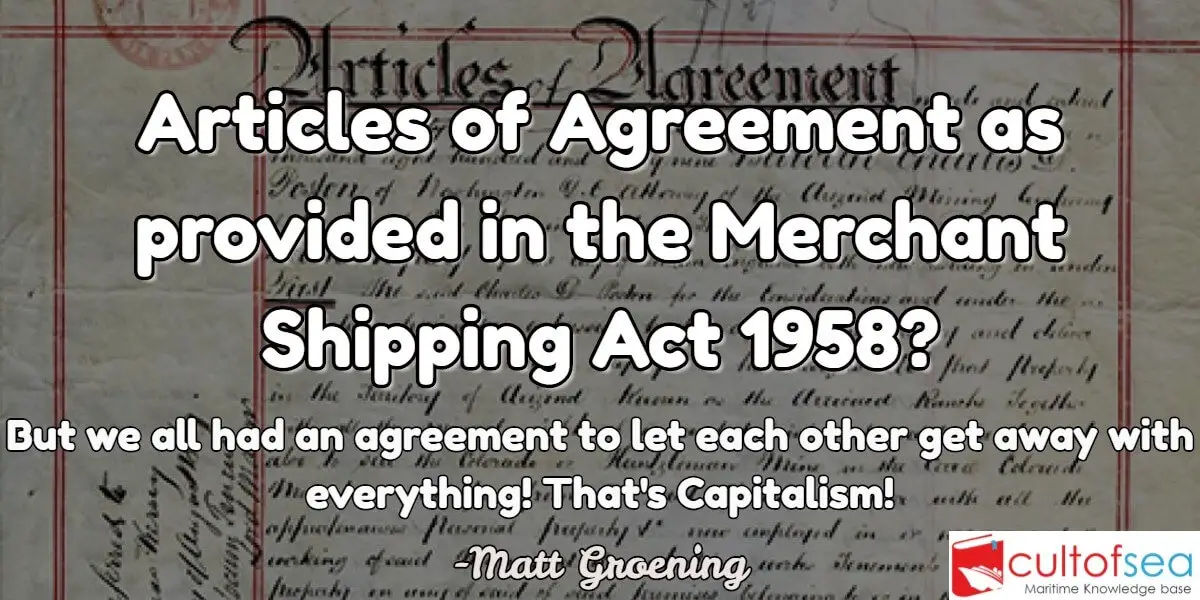Give the general terms of the Articles of Agreement as provided in the Merchant Shipping Act 1958 ? (Section 101)
a. Five original copies of the articles of agreement may be signed between the employer/employer’s agent and the seafarer ashore. This signing on will be done in the office of the employer/employer’s agent, and not in the presence of the Shipping Master. The seafarer shall report on board ship with the first three signed original copies which shall be signed by the Master and the seafarer on board the ship. After this, the 1st and 3rd original copies would remain in the custody of Master whereas the 2nd original copy would be in possession of the seafarer.
b. After the first three original copies have been taken on board the ship, there will be two original copies left with employer/employer’s agent. The 4th & 5th original copies would not have signatures made by Master or by seafarer on board the ship. The 4th original copy will be retained by the employer/employer’s agent. The last, namely the 5th original, copy will be forwarded by the employer/employer’s agent to the concerned Shipping Master for the record at the earliest and in any case not later than 48 hours of seafarer signing off, the agreement ashore in India in the office of employer/employer’s agent.
The Articles of Agreement must be in the prescribed from & is to be dated at the time of the first signature of the crew & prior to this it must be signed by the owner or agent & the master.
The crew agreement must contain details of the following terms:
- The name of the ship or ships on which the crewman agrees to serve.
- The nature & duration of the voyage & the parts of the world to which the voyage is not extended.
- The number & description of the crew of each department.
- The time, the seaman is to report on board.
- The capacity in which the seaman is to serve.
- The seaman’s wages.
- A scale of provisions to be furnished to each seaman, such scale being not less than as laid down by the central government.
- Details of warm clothing & provisions to be supplied in specified cold regions.
- Regulations regarding conduct on board & details of fines & punishments as laid down by the central government.
- Payment of compensation for injury or death.
- In case the services are to be terminated outside India then the agreement is to provide free repatriation back to India.
- Any other stipulation that may be required.
In case there is any dispute between the owner or agent & the master of the ship & a seaman such a dispute shall be referred to the nearest Indian consular officer & his decision shall be binding till the ship returns to the port in India at which the seaman is to be finally discharged.
The agreement must record the requirements of advance & allotments & other stipulation not contrary to law. The master shall provide the copy of the agreement to the members of the crew. Any change in a crew agreement is only valid if it is made with the consent of all the parties concerned & the same is to be attested by the shipping master in India or by an Indian consular officer outside India.

Apart from these 5 copies that are there , how many types of AOA are there
CBA OR AOA, Which one is Tri party agreement?
Cba, bcos it includes seafarer, company and the union
CBA is bi-party, only Union and the employment company